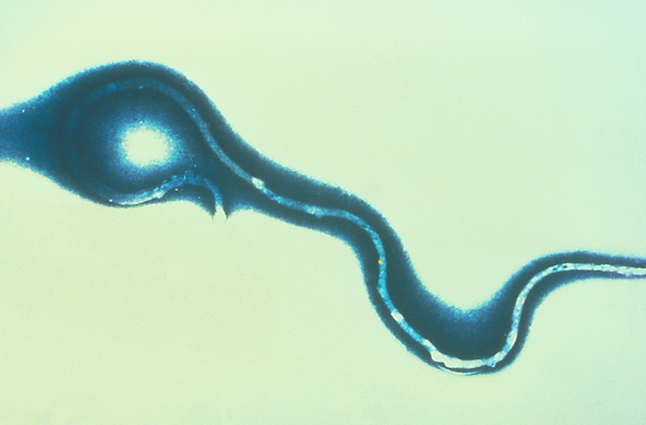New insights into Lyme Disease from GSBS alum Mike Pereira and the Leong lab

Borrelia burgdorferi is the causative agent of Lyme disease, a potentially devastating disease that is common in our area and elsewhere. The way the bacteria evades the body's defenses, including the complement system, is important to controlling the infection.
New research conducted by the Leong lab with collaborators from Eastern Carolina University and the University of Kansas Medical Center, has shed important light on how the bacterium evades the complement system. The team identified two surface lipoproteins on the surface of Borrelia that seem to protect the organism from complement-mediated killing.
John Leong, MD, PhD is a member of the Immunology and Molecular Microbiology graduate programs at GSBS. Michael Pereira, PhD, graduated from the Molecular Microbiology program at GSBS.
Pereira MJ, Wager B, Garrigues RJ, Gerlach E, Quinn JD, Dowdell AS, Osburne MS, Zückert WR, Kraiczy P, Garcia BL, Leong JM. 2022. Lipoproteome screening of the Lyme disease agent identifies inhibitors of antibody-mediated complement killing. Proc Natl Acad Sci USA. Mar 29;119(13):e2117770119. doi: 10.1073/pnas.2117770119.